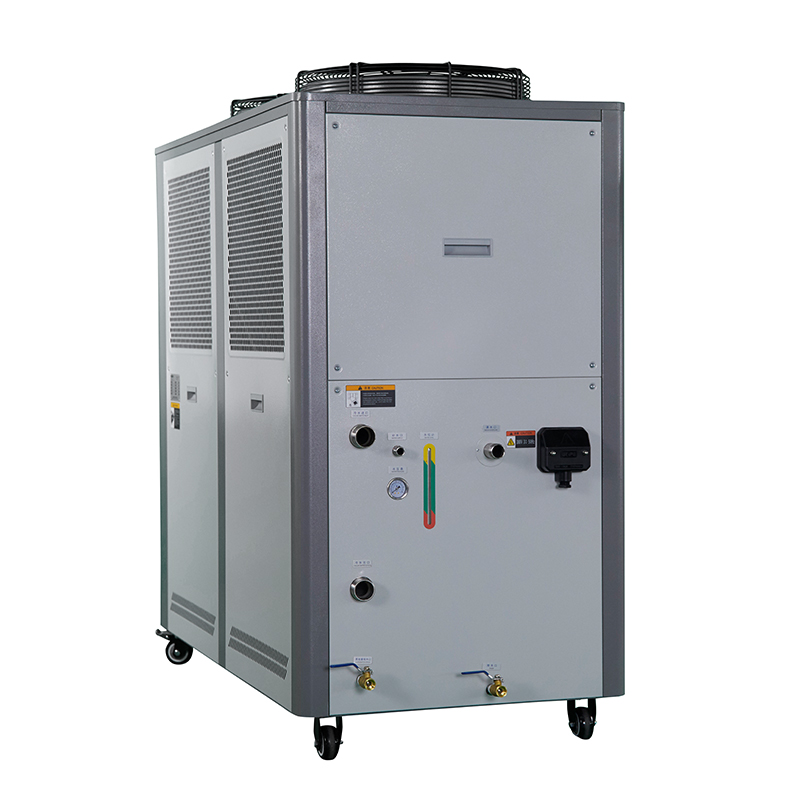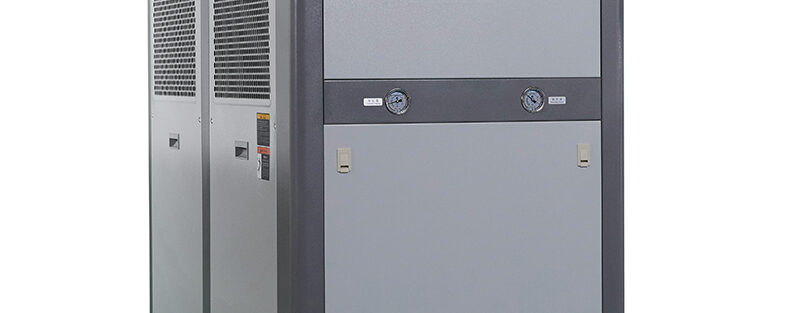Modern manufacturing relies on precision. From small electronics to enormous machinery, even the slightest error can ruin a product. High-precision industrial water chillers come in handy. They control temperatures to a very high level of precision, making machines and materials function as desired. Here’s why they’re critical.
Keeping Machines Operating at Precise Temperatures
Many manufacturing machines generate heat during operation, such as lasers cutting metal, injection molds shaping plastics, and 3D printers. Excessive heat can warp tools or alter the properties of materials. For example, overheating a laser cutter can cause uneven melting of the metal, ruining the final product.
High-precision industrial water chillers stabilize temperatures to within 0.1°C. They pump cold water or coolant through the machine to strip away surplus heat. It prevents tooling from deforming or expanding, hence ensuring consistent part size and shape. Without it, product quality will be changing, and the waste generated will be a significant cost. Choosing the reputable high-precision industrial water chiller China supplier Kansa can ensure such stable temperature control.
Ensuring Material Quality and Consistency
Materials like plastics, metals, and glass behave differently in hot and cold environments. For example, in injection molding, plastic melts at a specific temperature. If the mold temperature is too high, the plastic cools too slowly and deforms; if the temperature is too low, the plastic may crack.
High-precision industrial water chillers regulate mold temperature to the value required for the material to high precision. That is, every plastic part, whether a toy or an automotive component, maintains consistent quality. For metals, uniform cooling prevents internal stresses that will lead to cracks later in life. Without precise cooling, material batches can vary, leading to assembly difficult and even posing a safety risk.

Increase Production Speed without Sacrificing Quality
Faster production means more products, but speeding up often generates more heat. Ordinary water chillers lag behind and therefore factories have to slow down production to avoid overheating. High-precision chillers, however, can handle more heat without losing control.
For example, a manufacturing plant that produces smartphone circuit boards can run its machines at high speeds because chillers keep soldering tools at proper temperatures. More circuit boards are produced in an hour, and each one will function properly because the heat doesn’t damage the tiny components. This speed boost increases profits without cutting corners.
Reduce Energy Waste and Costs
Low-precision or old chillers consume excessive energy. They overcool or cycle excessively, wasting electricity. Kansa’s high-precision industrial water chiller solutions are intelligent, which adjust the cooling power based on the machine’s needs.
When the machines are not running at full capacity, the chillers slow down, reducing energy consumption. Over time, this all adds up to a lot of money saved on utility bills. For large plants, that is thousands of dollars per year. And because they work less intensively, they also last longer, reducing replacement costs. Choosing high-precision industrial water chillers wholesale can further reduce the initial investment for large-scale production.
Supporting Advanced Manufacturing Technologies
Modern manufacturing methods such as 3D printing, laser welding, and microelectronics require extreme precision. Drifts in temperature of just 0.5°C can ruin the fit of a component while making medical implants with the use of 3D printers. High-precision chillers provide the stability these technologies require.
In microchip manufacturing, where components are smaller than a grain of sand, even tiny temperature changes can damage the circuits. Chillers’ precision cooling makes the chips work properly, which keeps our phones, computers, and medical devices reliable.
Extending Equipment Life
Continuous overheating is a fatal flaw in manufacturing equipment. When a machine operates excessively hot, internal components deteriorate faster, leading to motor failure, gear deformation, and sensor failure. High-precision industrial chillers prevent this by stabilizing temperatures and reducing wear.
For instance, a car assembly industrial robot emits a lot of heat in its joints. Chillers for precision are used to circulate coolant through such components, maintaining them at the correct temperatures. This implies that the robot gets fewer repairs and lasts years more than a similar robot that often overheats.
Helping Meet Environmental Standards
Modern factories work with stringent controls on energy usage and emissions. Precise chillers meet the demands. They consume less electricity, reducing power plants’ dependence on fossil fuels. Many also use environmentally friendly coolants that are also ozone layer-friendly.
By conserving energy, they reduce the factory’s carbon footprint. This is not only good for the planet, but it also lets factories avoid fines for violating environmental regulations and, in some cases, qualifies them for green energy incentives.
Conclusion
High-precision industrial water chillers are more than just “cooling machines”; they are the backbone of modern manufacturing. They maintain stable temperatures, ensure product quality, speed up production, save energy, support advanced technologies, extend equipment life, and contribute to environmental goals. Without them, factories would be unable to produce the stable, high-quality products we rely on in our daily lives. Contact Kansa Refrigeration to learn more about industrial water chillers.nable to produce the stable, high-quality products we rely on in our daily lives. Contact Consee Refrigeration to learn more about industrial chillers.




